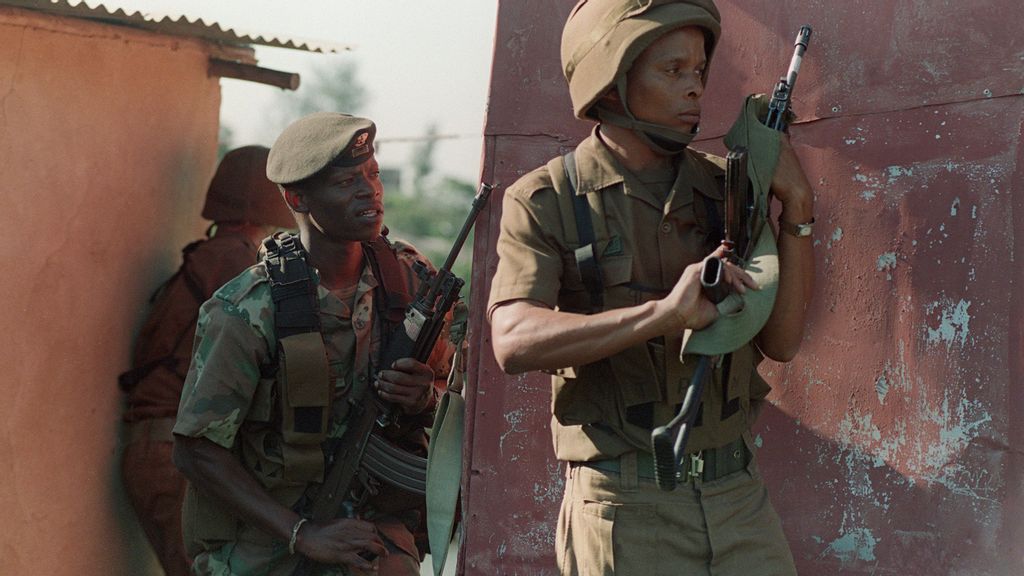
The Cold War in Southern Africa produced some odd bed fellows. At one point during the Angolan Civil some 2,000 Cuban soldiers were assigned to defend the operations of an American oil company. The irony of Communist internationalists defending an American oil company whose revenues were providing for the majority of the funds for Angola’s communist government may have been lost at the time.
“Apartheid’s Black Soldiers Un-national Wars and Militaries in Southern Africa” by Lennart Bolliger published by Ohio University Press provides more such intriguing examples that have until now slipped through the pages other history books. The book looks at Namibians who fought against the Socialist SWAPO and mostly Angolan soldiers who fought with the South African Army. The latter became a Portuguese-speaking elite unit of the South African Defence Forces. SWAPO would win securing Nambia’s independence and Aparthied would crumble in South Africa. That these men were on the wrong side of history doesn’t detract from the human elements of their stories.
The 32nd Battalion which started out as uniquely Angolan unit made up of former rebels who had fought against the Portuguese Empire. Many of who became rebels once again when the Socialist MPLA took power in the country in the 1970s. Some were defectors from the MPLA itself.
The Soviet Union committed advisors to the MPLA down to the Brigade level as late as 1989. Yet, when the Angolan Civil War ended the 32nd Battalion was re-deployed for urban police operations in Africa. Its officers were largely white who learned Portuguese to better interact with their men. Intriguingly, the unit at one point also absorbed a group of Lusophone rebels from Sao Tome and Principe – a platoon seized group of survivors who had launched an abortive rebel invasion of that country.
Rare for a scholarly book this is a quick read. The book could have better served the reader with a bit more general history of the period in the introduction. The first chapter of the book presents a historical sketch of the former South West Africa (Namibia) and Angola. A bit more background information here could have been useful for the neophyte reader in particular regarding Kaokoland, a proto-Bantustan in Namibia provided much of the Black police units who fought against SWAPO.
However, none of that detracts from this excellent piece of scholarship in which the voices of participant are heard from. In effect lifting a veritable veil of silence.
The final stanza of the book looks at the fate of both groups in the ensuing decades since South Africa’s became a full democracy in 1994. The author describes how some 32nd Battalion members became mercenaries involved in such diverse enterprises. Some became contractors during the Coalition invasion of Iraq in 2003. Others were involved in a 2004 coup plot aimed at Equatorial Guinea. Others went on to play important roles in South Africa’s military after the racist Apartheid system was dismantled.
In Namibia the fate of the veterans of the various security units has been quite different as various veterans group have been formed to advocate for their rights. While veterans of SWAPO have long been given preference the author suggests attitudes in Namibia maybe changing.
This is a book that should be of broadly interested in books on African conflicts, the formation of proxy forces, and the important issue of combatant re-integration.
(Additional reporting provided by Virginia Van Zandt)
Recommended from our partners
The post New Book Considers Forgotten Black Soldiers In South Africa’s Wars appeared first on Zenger News.










